Recent Blog Posts
What Happens if I Am Arrested for Weapons Trafficking in Florida?
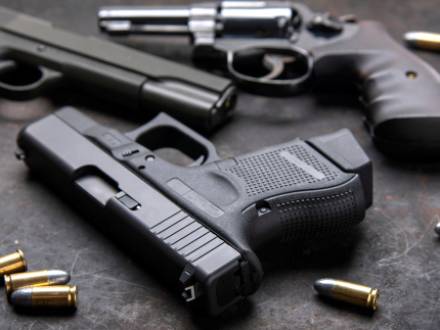 Illegally selling, transferring, or having in your possession guns or other weapons could be considered weapons trafficking in Florida and is serious business. Law enforcement agencies at the state and federal levels aggressively prosecute gun trafficking offenses, and convictions often carry long prison terms and permanent criminal records.
Illegally selling, transferring, or having in your possession guns or other weapons could be considered weapons trafficking in Florida and is serious business. Law enforcement agencies at the state and federal levels aggressively prosecute gun trafficking offenses, and convictions often carry long prison terms and permanent criminal records.
If you have been arrested, your first step should be to contact an experienced Miami, FL weapons trafficking defense attorney who understands Florida’s weapons laws and federal firearm regulations – and who is not afraid to fight aggressively for your freedom.
Understanding Your Rights if Arrested for Weapons Trafficking in Florida
Prosecutors charge people with gun crimes when someone is accused of illegally selling, delivering, or transporting firearms. This includes unlicensed gun sales, moving guns across state lines without authorization, and the movement of large quantities of firearms. Arrests often happen after undercover operations, informant tips, and federal investigations.
Temporary vs. Final Protective Injunctions in Florida
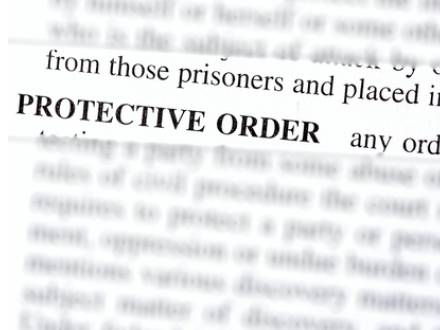 Domestic violence in Florida is legally defined as an assault, battery, sexual assault, stalking, kidnapping, or any other criminal offense that results in the injury or death of a family or household member by another family or household member. A dating relationship that has happened within the last six months in also this category under Florida statute.
Domestic violence in Florida is legally defined as an assault, battery, sexual assault, stalking, kidnapping, or any other criminal offense that results in the injury or death of a family or household member by another family or household member. A dating relationship that has happened within the last six months in also this category under Florida statute.
Court-ordered protection may be sought by those who claim they are victims of domestic violence. This protection comes in the form of a protective injunction, sometimes known as a restraining order. While the two terms may be used interchangeably, legally, Florida has only protective injunctions. If you have had a protective injunction taken out against you, whether warranted or not, speaking to an experienced Fort Lauderdale, FL criminal defense lawyer can be extremely beneficial.
What Happens if a Florida Driver Is Arrested for DUI Out of State?
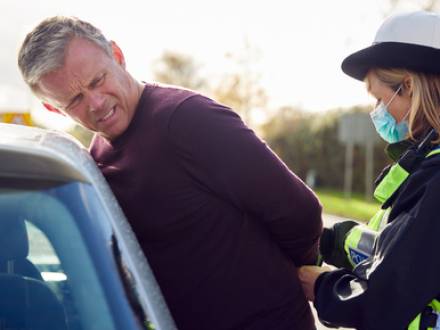 Getting arrested for a DUI in Florida while you are far from home is scary in the moment and complicated in the aftermath. For out-of-state drivers, it often means you will face consequences in Florida and your home state.
Getting arrested for a DUI in Florida while you are far from home is scary in the moment and complicated in the aftermath. For out-of-state drivers, it often means you will face consequences in Florida and your home state.
Your best chance at fighting the charges against you is to hire an experienced Miami DUI defense attorney. These cases require a thorough understanding of Florida DUI laws and how they apply to non-residents of the state. When the stakes are high and the repercussions of a conviction are long-term, you need aggressive representation.
What Are the Penalties for Non-Residents Arrested for DUI in Florida?
Florida is part of the Interstate Driver’s Licence Compact (IDLC), which allows states to share information regarding DUI convictions and penalties, specifically license suspensions. Therefore, when a non-resident is arrested for a DUI in Florida, the potential for facing penalties in two states is high. While you may hold a license from another state, Florida law will govern your case, and your home state could take legal action against you afterward.
Can Illegal Search and Seizure Impact a Drug Trafficking Case?
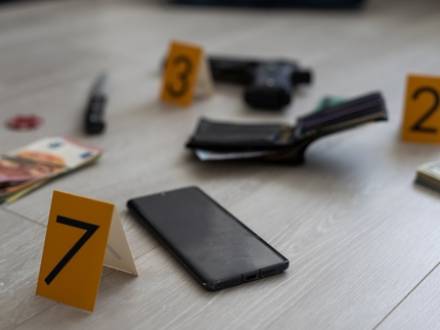 Facing a drug trafficking charge in Florida can be intimidating. With your attorney, you have to challenge the evidence presented against you, and if any of that evidence was obtained during an unlawful search and seizure, your ability to fight the charge is considerably better. An experienced Broward County, FL drug trafficking attorney will investigate the details of your arrest and the charges against you to help you build a strong strategy and protect your constitutional rights.
Facing a drug trafficking charge in Florida can be intimidating. With your attorney, you have to challenge the evidence presented against you, and if any of that evidence was obtained during an unlawful search and seizure, your ability to fight the charge is considerably better. An experienced Broward County, FL drug trafficking attorney will investigate the details of your arrest and the charges against you to help you build a strong strategy and protect your constitutional rights.
What Does Illegal Search and Seizure Mean?
An illegal search and seizure occurs when the police conduct a search or collect evidence without adhering to legal protocol. The Fourth Amendment protects you from unlawful searches and seizures, requiring police to have probable cause and, in most cases, a warrant to search your person or your property.
Can I Have My Gun Rights Restored in Florida?
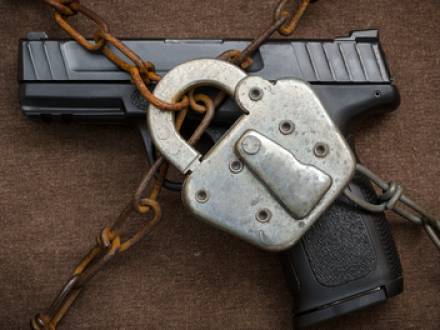 Under the Second Amendment to the U.S. Constitution, Americans have the right to bear arms. However, that right can be lost under both federal and state laws — particularly for people convicted of certain crimes. If you have been convicted of a felony or a gun-related offense in Florida, you are likely prohibited from owning, possessing, or purchasing a firearm. The same is true if you were convicted of a misdemeanor involving domestic violence.
Under the Second Amendment to the U.S. Constitution, Americans have the right to bear arms. However, that right can be lost under both federal and state laws — particularly for people convicted of certain crimes. If you have been convicted of a felony or a gun-related offense in Florida, you are likely prohibited from owning, possessing, or purchasing a firearm. The same is true if you were convicted of a misdemeanor involving domestic violence.
Fortunately, this loss of rights is not always permanent. In some cases, a person may be able to regain their firearm rights through a specific clemency process administered by the State of Florida. While the path is strict and highly regulated, it is possible to succeed — especially with legal guidance from an experienced and tenacious Miami, FL gun rights restoration lawyer. If you are located in Miami-Dade County and want to understand your options, The Hoffman Firm can walk you through the steps and help you prepare a strong application.
Defending Possession of a Firearm by a Convicted Felon
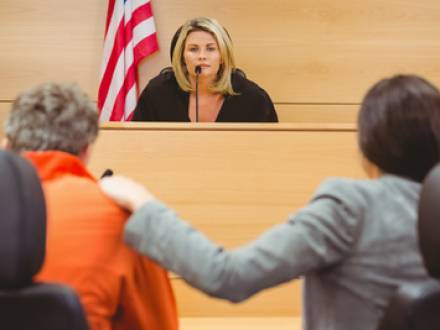 A felon in possession of a firearm charge can have severe, life-changing consequences. Understanding your rights is the first line of defense, and a Broward County, FL felon in possession of a firearm attorney will walk you through the legal process and the possible defenses as they apply to your case. You do not have to face these charges alone.
A felon in possession of a firearm charge can have severe, life-changing consequences. Understanding your rights is the first line of defense, and a Broward County, FL felon in possession of a firearm attorney will walk you through the legal process and the possible defenses as they apply to your case. You do not have to face these charges alone.
What Are Common Defenses for Possession of a Firearm by a Convicted Felon?
Pretrial defenses challenge how the evidence used to charge you was collected and whether or not it is sufficient for a conviction. Trial defenses can either challenge the sufficiency of the evidence or raise an affirmative defense. Examples of these defenses include:
-
Illegal search and seizure: You may be able to argue that the law enforcement officer who found the firearm did so through an unlawful search, violating your Fourth Amendment rights.
Understanding Testimony Requirements in Domestic Cases with Restraining Orders in Miami and Broward, Florida
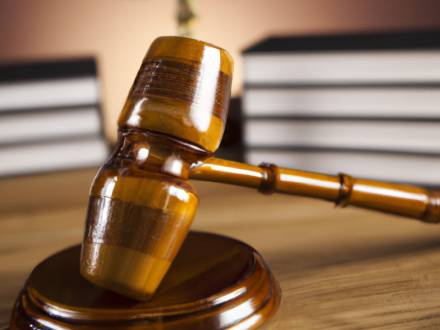 In Miami and Broward, Florida, individuals facing domestic cases involving restraining orders often have questions about their legal rights and obligations regarding testimony. As a reputable criminal defense attorney at Hoffman Law Firm, Evan Hoffman provides valuable insights into this complex legal issue.
In Miami and Broward, Florida, individuals facing domestic cases involving restraining orders often have questions about their legal rights and obligations regarding testimony. As a reputable criminal defense attorney at Hoffman Law Firm, Evan Hoffman provides valuable insights into this complex legal issue.
First and foremost, it's crucial to understand that court-issued restraining orders carry significant legal weight and must be adhered to. These orders are designed to protect individuals from potential harm or harassment and are enforceable by law.
When it comes to testimony in a domestic case with an open restraining order, several factors come into play. Courts may require testimony from various parties involved, including the individual protected by the restraining order and the respondent named in the order. However, legal protections exist to ensure fairness and safety throughout the legal process.
One important consideration is the concept of privilege, which applies to certain communications and interactions. For example, spousal privilege may prevent one spouse from being compelled to testify against the other in certain circumstances. However, the specifics of privilege can vary based on the nature of the case and the relationship between the parties involved.
Understanding Constructive Possession and Open Carry of Weapons in Miami and Ft. Lauderdale, Florida
In Miami and Ft. Lauderdale, Florida, understanding the laws regarding constructive possession and open carry of weapons is crucial. As a respected criminal defense attorney at Hoffman Law Firm, Evan Hoffman sheds light on this complex legal issue.
Constructive possession refers to the legal concept where an individual has control over an object, even if it is not physically in their possession. This concept often comes into play in cases involving firearms or other weapons. In Florida, the law prohibits certain individuals, such as convicted felons, from possessing firearms. However, constructive possession can extend beyond physical possession to include situations where an individual has control or access to a weapon.
Open carry refers to the practice of visibly carrying a firearm or weapon in public. Florida has specific laws governing open carry, including requirements for obtaining a concealed carry permit. It's essential for individuals to understand these laws to avoid potential legal consequences.
Concealed Carry Is Now Legal in Florida: What You Need to Know
The recent legalization of concealed carry in Florida marks a significant milestone for gun rights enthusiasts. However, it's important to note that not everyone is automatically eligible to exercise this newfound privilege. For individuals with felony convictions on their record, understanding the process of rights restoration is crucial. In this blog post, we will explore the implications of the new concealed carry law in Florida and the steps felons can take to regain their rights.
Concealed Carry in Florida: A Brief Overview
As of July 1st, 2023, eligible individuals in Florida can now legally carry concealed weapons in public places, provided they have obtained the necessary permit. However, it's important to recognize that this privilege does not extend to individuals with felony convictions.
Rights Restoration for Felons in Florida
If you have a felony conviction in Florida, your rights, including the right to possess a firearm, are restricted. However, there are avenues available for rights restoration:
Florida's New Gun Law: Permitless Concealed Carry Takes Effect
On July 1, 2023, Floridians experienced a significant change in their state's gun laws. Governor Ron DeSantis signed a bill into law in April, ushering in a new era of firearm regulations. Starting on this date, Floridians will be able to carry concealed guns without a permit, marking a substantial shift in the state's approach to gun ownership and concealed carry.
The New Law
The bill signed by Governor DeSantis eliminates the requirement for Floridians to obtain a concealed carry permit to carry a concealed firearm. This change means that individuals who meet certain eligibility criteria will be allowed to carry a concealed firearm without having to go through the previous process, which included mandatory training, licensing fees, and background checks.
Key Provisions of the Law:
- Permitless Concealed Carry: The most significant change is that individuals who are legally eligible to possess a firearm can now carry it concealed without obtaining a specific concealed carry permit.
















